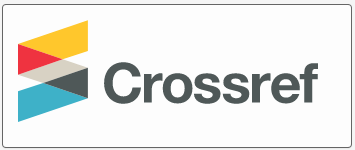The Lexical Field of the Adjective მცირე mtsire “Small” on Different Stages of Development of the Georgian Language
DOI:
https://doi.org/10.52340/idw.2023.29Keywords:
Lexical unit, lexical field, expression of lack, stages of the literary Georgian languageAbstract
The adjective მცირე mtsire “small” has a wide field of use in the literary Georgian language and colloquial speech. It expresses a small amount based on size–weight, volume and number. In Old Georgian, its semantic field was even broader. In Old Georgian literary texts, მცირე /mtsire/ (small) expressed a small amount with regard to age, price and social status. The meaning and frequency of occurrence of this adjective changed with time. In some cases, it was replaced by other adjectives. Instead, მცირე /mtsire/ (small) started to form part of certain terms and set expressions. In our opinion, the material analyzed in the paper will be valuable, on the one hand, for the study of the lexical field of the given adjective, and, on the other hand, for observation of the changes taking place in the language. In some cases, it was replaced by ცოტა /tsot’a/ (few) and პატარა /p’at’ara/ (little), which are rarely found in the literature of the 5th-11th centuries. Their usage became more frequent in the medieval texts. Currently, ცოტა /tsot’a/ (few) denotes only a small amount, whereas პატარა /p’at’ara/ (little) is most widespread and expresses a small quantity based on different semantic nuances. As for მცირე /mtsire/ (small), it often denotes the lack of a certain feature, yet, as compared to the data of Old and Middle Georgian, its area is restricted. It is rarely found independently as an attribute. Most frequently, it is accompanied by another lexical unit denoting the markers of evaluation of the object: small size, small amount, young age, small number etc. In modern literary Georgian, მცირე /mtsire/ (small) forms terms and collocations (მცირე აზია /mtsire azia/ (Asia Minor), მცირე ბიზნესი /mtsire biznesi/ (small business), მცირე მეურნეობა /mtsire meurneoba/ (small farm), მცირე მეწარმე /mtsire mets’arme/ (small entrepreneur)...), compounds (მცირემოსავლიანი /mtsiremosavliani/ (yielding small amount of crops), მცირეწლოვანი /mtsirets’lovani/ (juvenile), მცირერიცხოვანი /mtsireritskhovani/ (scanty), მცირეყალიბიანი /mtsireq’alibiani/ (small-calibre)...), set expressions (მცირე ხარვეზი /mtsire kharvezi/ ( a minor defect), მცირე დანაკარგი /mtsire danakargi/ (minor loss), მცირე გაბარიტის ბომბები /mtsire gabaritis bombebi/ (small-size bombs), მცირე სიმძლავრის ელექტროსადგური /mtsire simdzlavris elekt’rosadguri/ (small-power plant)...). The lexical unit მცირე /mtsire/ is chiefly peculiar of scientific, journalistic and formal/business style.
On the one hand, the Old, Middle and Modern Georgian data analyzed in the paper reveal the lexical field of the word მცირე /mtsire/ (small). On the other hand, these data reflect the changes that happened in the language at different stages of its development.
Downloads
References
აბულაძე ი. (1973). ძველი ქართული ენის ლექსიკონი. თბილისი: მეცნიერება.
სარჯველაძე ზ. (1995). ძველი ქართული ენის ლექსიკონი. თბილისი: თსუ გამომცემლობა.
სარჯველაძე ზ. ძველი ქართული ენის სიტყვის კონა. (2001). თბილისი სულხან-საბა ორბელიანის სახელობის პედაგოგიური უნივერსიტეტის გამომცემლობა.
ქართული ენის განმარტებითი ლექსიკონი V. (1958). თბილისი. საქართველოს სსსრ მეცნიერებათა აკადემიის გამომცემლობა.
ქართული ენის ეროვნული კორპუსი − gns.gov.ge







